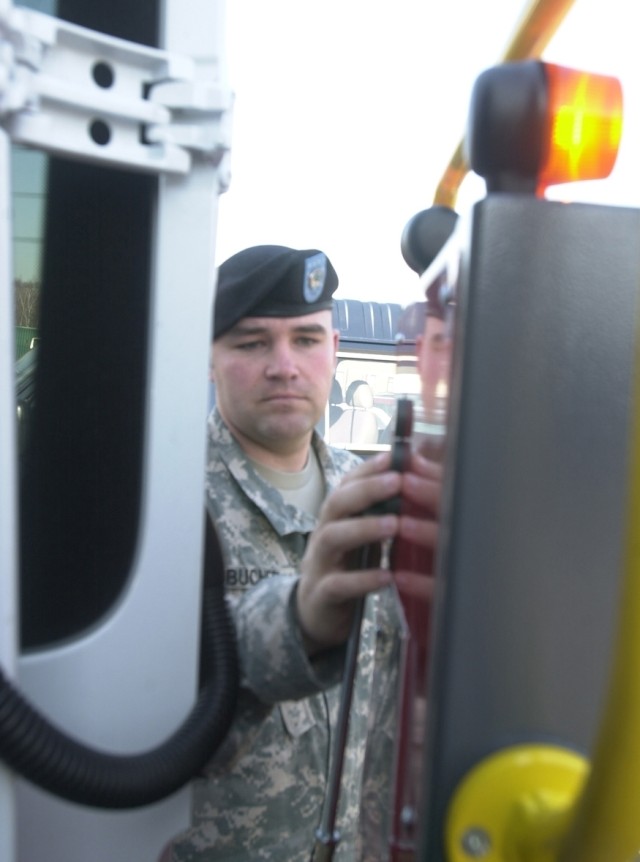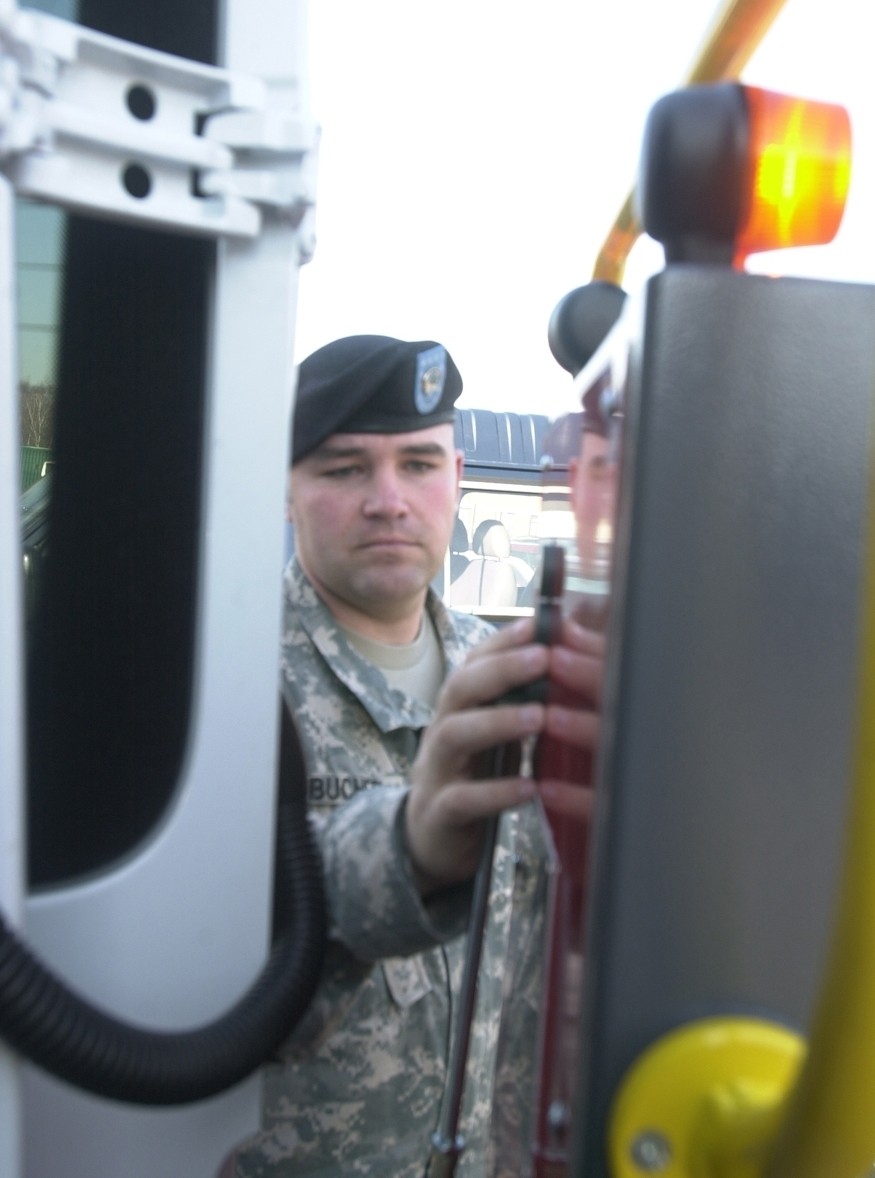CHIAfE+VRES, Belgium - The Benelux Warrior Transition Unit squad leader has bled for his country.
He understands what wounded warriors go through, which is "why I was selected to (support them)," said Sgt. 1st Class Brandon Bucher. "My mission is to make sure they receive optimal care. A warrior in transition's mission is simple ... to heal."
Overall, the Army has transformed how it provides treatment to wounded, ill and injured Soldiers, including those from active, Reserve and Guard components.
Each Soldier assigned to a WTU is provided with a triad of support: squad leader; nurse; case manager and a primary care manager.
Currently, Bucher has two Soldiers in his platoon, with U.S. Army Garrison Benelux supplying four rooms in single servicemembers quarters on ChiAfA..vres Air Base for the program's use.
However, Bucher believes the Benelux organization operation could "grow significantly as we currently have 11 Soldiers going through medical evaluation boards."
Like those members he supports, Bucher knows what it means to be a warrior in transition; he was wounded twice while deployed downrange.
Accordingly, he realizes the value of serving as a link between Soldiers, the command team and medical providers. For example, he makes initial contact with a troop and his Family within 24 hours of their arrival at the WTU, and he continues meeting with them at least weekly.
Soldiers assigned to his platoon have already been through a medical evaluation board and require more than six months of complex treatment. Most of their time is spent receiving care, with duty limitations precluding them from contributing to a unit's daily mission.
When needed, Bucher steps in when difficulties arise.
For example, one of his Soldiers had problems getting help after being told he needed an appointment, with the next available opening being several weeks away.
"With a phone call to hospital leadership," Bucher said, "the Soldier was seen immediately. That is how we need to take care of our wounded or injured."
After care is completed, members assigned to a WTU return to their original organization or transition to civilian life. Until then, Bucher is responsible for their well being, while ensuring each person meets a medical treatment plan.
"I become their chauffeur," he said. "I take them to their hospital appointments, drive kids to school, pick up groceries - whatever it takes, whatever is needed."
While USAG Benelux Soldiers deploy in small numbers or as individuals augmenting special needs, Bucher sees an expanding requirement for WTU squad and platoon leaders here in the future.
"Not all wounds bleed and require bandages," he said. "Traumatic brain injuries and post traumatic stress disorders could show up after a warrior redeploys or even after they have (departed) to another unit. Sometimes, it is well over six months before warriors develop symptoms of TBI or PTSD."
When providing WTU Soldiers and Families with administrative support, Bucher coordinates with Maria Romero of the Soldier and Family Assistance Center to improve the healing process.
The SFAC is designed as a one-stop location, providing Army Community Service support with Department of Human Resources programs, military benefits, substance abuse program counseling and education opportunities.
Romero said her role is easy to understand, explaining: "Soldiers put the mission first. My mission is to put Soldiers and their Families first."
Married to a deployed Soldier, Romero knows what Families experience during long separations. She understands what it takes to take on double the parenting responsibility while a loved one is in harm's way.
"(Soldiers and Families) have earned the respect of our nation," Romero said. "They deserve to be first."


Social Sharing